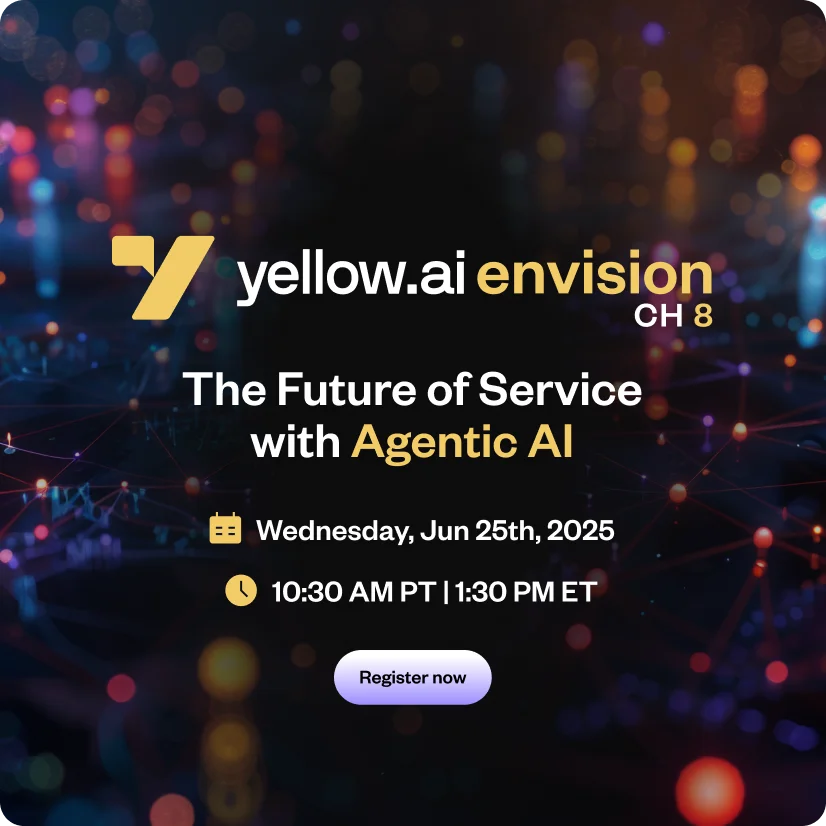Most organizations have an employee evaluation system in place that they use to measure the impact an employee has on the overall organization goals. However, many of these evaluation or performance management systems are archaic and based on a manager’s subjective opinions. It can be very easy for the Halo Effect to creep its way into performance appraisals if your process isn’t objective.
Read this blog to learn more about employee performance management and how you can make it more effective and unbiased by leveraging AI.
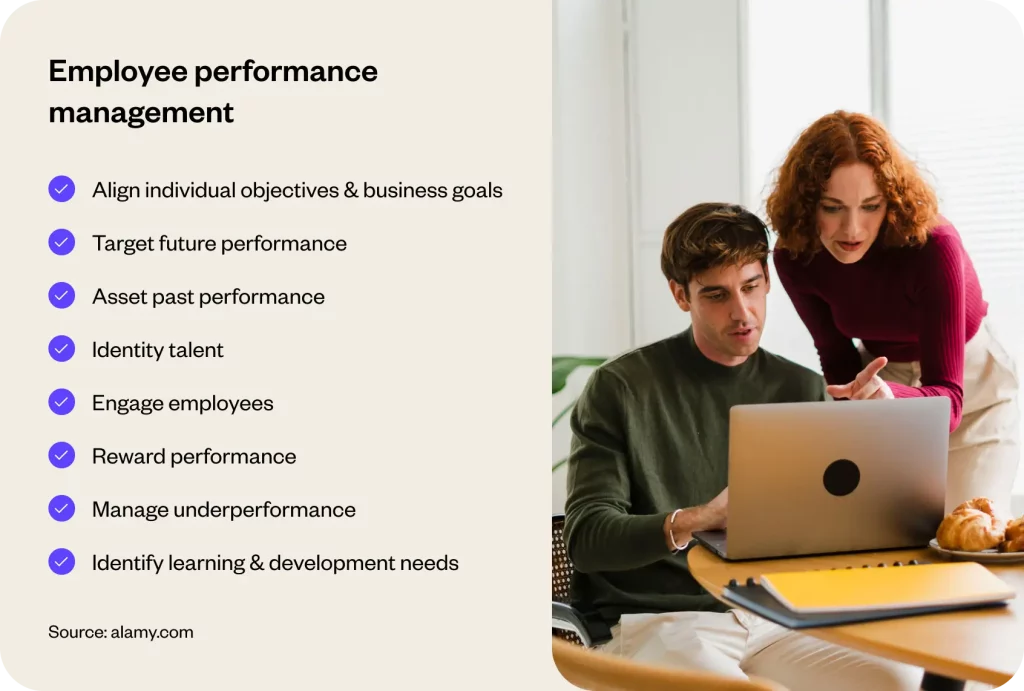
What is employee performance management?
Employee performance management is a dynamic and strategic process for an organization to keep up a high-performance culture. Its goal is to bring out the best in each employee and make sure they work towards the organization’s long-term goals.
It’s important to note that there is no set criteria for performance management. It can differ from one company to the other. However, there are certain things that all companies focus on while reviewing employee performance, like an employee’s personality traits, levels of skills and competencies, efficiency and their willingness to learn.
Role of AI in employee performance management
Standard annual reviews usually require managers to assign a numeric value to an employee’s performance, which is impossible without access to the right data. Evaluations based on opinions can cause negative experiences for both the employees and the managers.
A recent survey conducted by SHRM found that as many as 72% of companies still conduct annual reviews even though 87% of both managers and employees find them ineffective.
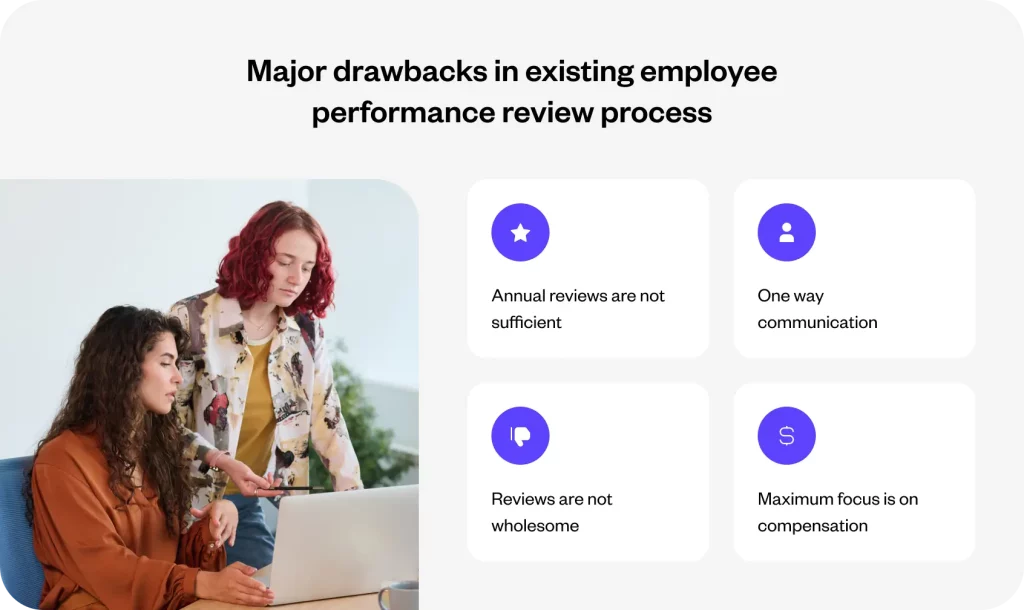
Also, Deloitte reported that approximately 244,000 employees spend more than 2 million hours a year on performance reviews. That’s a lot of time spent on something that is considered to be unreliable and ineffective. Then why do companies still perform traditional yearly reviews?
It is because without access to the right data, continuous reviews can be a tedious process and promote negative experiences. When reviews are conducted based on opinions, it nullifies the objective of the entire process because any feedback received could be biased.
AI helps remove bias from the process as any and every insight it derives about the employees’ productivity and performance is based on multiple sources of data. This helps team leaders to focus on factual information and provide more objective feedback. Let’s look at a few more advantages of using AI for employee performance management.
Advantages of using AI for employee performance management
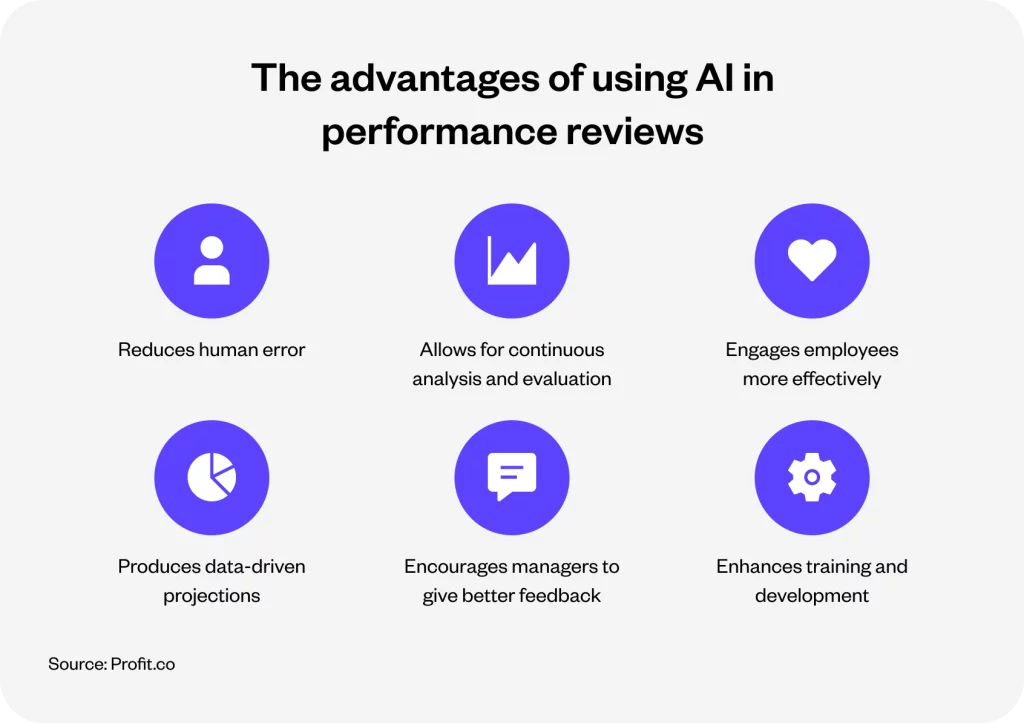
1. Reduces human error
In a traditional performance review, the managers are in charge of giving the employees feedback, which can make or break their careers. The managers have a lot to do, including rating the performance, finding the right training courses, figuring out what each person brings to the team, giving feedback on performance, setting goals for the future, and more.
When managers have to do all of this for a lot of employees, it can be hard on them and lead to mistakes like personal biases, conclusions based on incomplete data, and favoritism.
AI-powered performance management is entirely based on data. It has no personal likes or dislikes. It gathers information from many different places, so there is no room for error in the data itself. So, AI can help managers give objective feedback that helps both the employees and the organization.
2. Produces data-driven projections
Conventional performance reviews are based on the limited data available and the performance indicators listed on the evaluation form.
AI-powered performance reviews go through a lot of data and make predictions based on not only the current review, but also how the employee’s performance and career have changed over time.
This is a crucial part of figuring out an employee’s potential and setting the right goals for them. It can help the manager find promotions and calculate incentives more accurately.
3. Allows for continuous analysis and evaluation
There are many benefits to switching from periodic performance reviews to ongoing reviews. Performance can be fine-tuned and improvements and course corrections can be made constantly. As a result, the organization becomes agile and flexible. Moreover, research suggests that up to 60% of employees prefer continuous feedback.
AI gives you the ability to continuously collect data from a variety of sources, like written communication between employees, calendars, etc. So, the system can give real-time information about how people are doing, which helps managers make quick decisions and give immediate feedback.
4. Encourages managers to give better feedback
AI helps managers double-check their decisions and make sure that the feedback they give is accurate. It will help the managers improve and give them access to more data and information about the employees they are reviewing.
In traditional performance reviews, managers have to rely on an employee’s word and their own opinion of a person’s performance. With AI-powered performance reviews, there is simply more data to use.
This can also improve how managers give feedback, because they can point to specific metrics to either back up their praise for an employee or show them where they can improve their output and job performance.
5. Engages employees more effectively
As part of a continuous performance review, AI can send out frequent intelligent surveys and collect feedback in real-time. It can also give employees personalized insights based on the results of these surveys or even their own self-evaluations.
This will help the management communicate better with the employees and give a more accurate picture of the day-to-day feats and challenges the employees face as individuals and as a team.
6. Enhances training and development
AI can help managers find gaps in the talent pool and give personalized training suggestions for each person by analyzing their career progression using data from past performance reviews, interests and skill sets. A big part of performance management is finding out what employees are good at and where they can improve.
AI can help make this part of an employee’s performance evaluation more accurate. AI technology built into learning programmes can help employees learn better and faster.
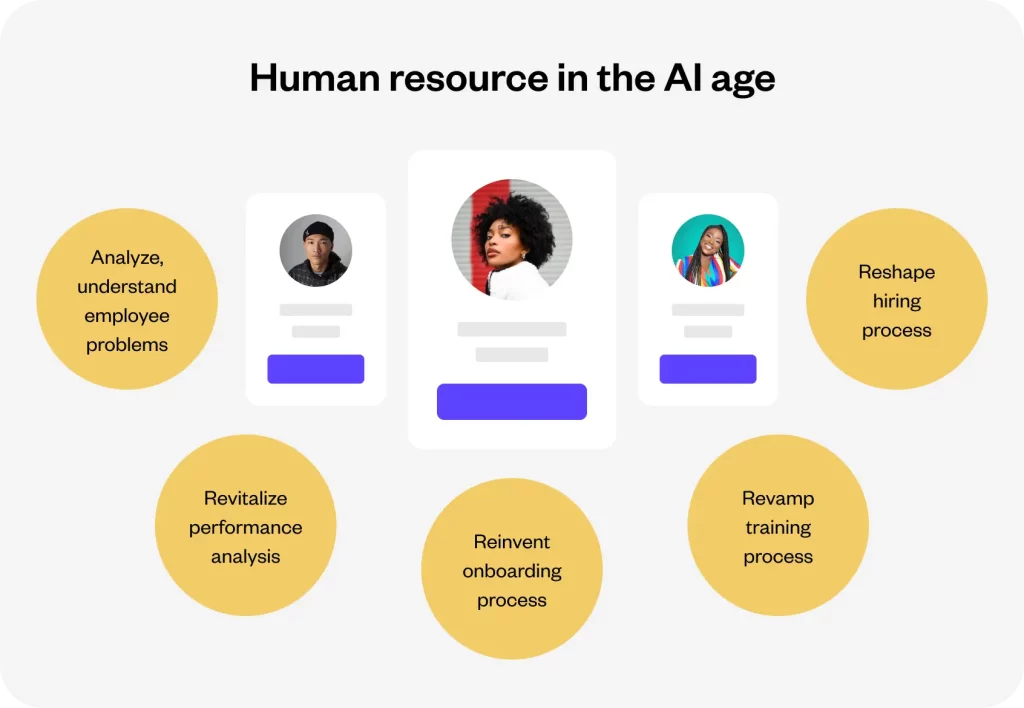
To sum up
Human resources is no stranger to artificial intelligence (AI). AI is already influencing recruitment, learning and the employee experience. The next best area for AI integration is performance management. Since it is mostly data-driven, performance management lends itself nicely to the use of technologies such as AI and ML.
Traditional techniques to performance management are limited by bias, inaccuracy of performance data and long turnaround times. Most employees are evaluated based on recent accomplishments that their bosses or supervisors recall rather than their overall performance. So naturally, the subjectivity of these processes fail to capture employee potential.
By implementing AI in the employee performance management processes, you can make the whole process data-driven and reduce the room for errors. To know more about how AI can help you gather and communicate employee feedback effectively, get in touch with our experts.














